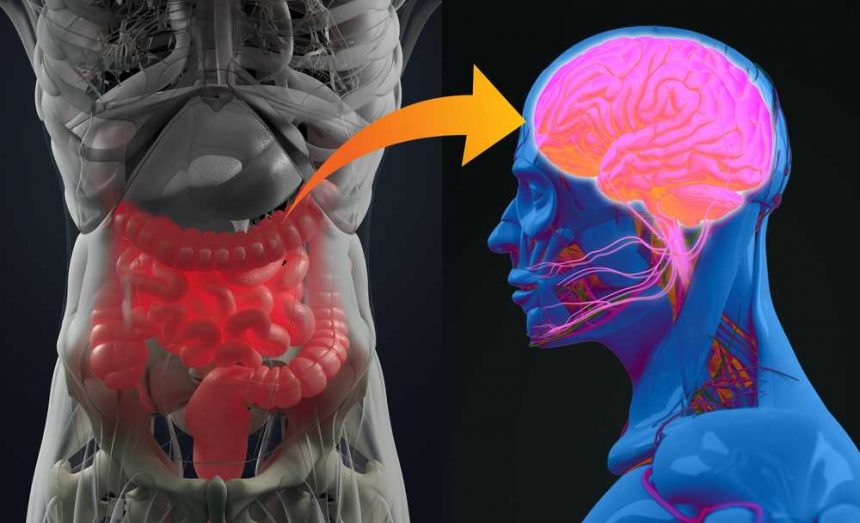Alzheimer’s disease is a significant global health concern, with projections indicating a substantial increase in affected individuals in the coming years. By 2050, an estimated 14 million people in the United States will be living with Alzheimer’s, up from 6.2 million in 2021. This rise in cases highlights the critical need for effective preventive strategies and treatments to address the impact on patients, families, and healthcare systems.

A recent publication in the Journal of Alzheimer’s Disease highlights a strong link between Alzheimer’s disease and substances produced by gut bacteria. Researchers assert that their findings provide “undeniable” evidence that intestinal microbes play a crucial role in Alzheimer’s development.
The gut-brain axis has been a focus of scientific exploration, suggesting that the microorganisms in our gastrointestinal tract directly influence the central nervous system. This bidirectional communication enables the brain to send chemical signals regulating appetite and digestion to the gut, with gut bacteria releasing various metabolites that impact brain function.
Research has suggested that an individual’s microbiome composition may influence their risk of Alzheimer’s, a connection now supported by this study. By examining participants aged 65-85, researchers identified associations between gut bacteria metabolites and the presence of amyloid plaques in the brain using PET scans and blood samples.
The study revealed that individuals with more amyloid plaques tended to have higher levels of blood lipopolysaccharides, known to promote plaque formation and brain inflammation. Furthermore, Alzheimer’s patients showed elevated levels of short-chain fatty acids produced by gut bacteria, which are also linked to brain inflammation.
Other compounds affecting endothelial cells and the blood-brain barrier were detected in individuals with high amyloid plaque levels, suggesting additional pathways through which gut microbes may impact Alzheimer’s progression.
Conversely, lower amyloid plaque levels correlated with higher concentrations of the neuroprotective short-chain fatty acid butyrate, known to reduce brain inflammation and protect neurons.
Lead author Moira Marizzoni emphasized the study’s findings, stating that certain bacterial products from the gut microbiota are correlated with amyloid plaque levels in the brain.
Co-author Giovanni Frisoni cautioned against premature celebrations, noting that while these insights won’t lead to a cure, they could aid in identifying at-risk individuals for early interventions.
Alternative Treatments and Preventative Measures
Alongside the gut-brain axis research, alternative treatments and preventive measures for Alzheimer’s have gained attention. Lifestyle changes, supplements, and herbs may contribute to brain health and potentially delay disease onset/progression, complementing the microbiota findings:
- Healthy Diet: A balanced diet rich in fruits, vegetables, whole grains, lean protein, and healthy fats can support brain health, with diets like Mediterranean and DASH recommended for their protective effects.
- Regular Exercise: Physical activity improves cognitive function and reduces Alzheimer’s risk, especially aerobic exercises linked to enhanced memory function.
- Mental Stimulation: Brain-challenging activities help maintain cognitive function and lower Alzheimer’s risk.
- Omega-3 Fatty Acids: Found in fish, nuts, and seeds, these fats improve cognitive function and reduce inflammation.
- Curcumin: The antioxidant compound in turmeric may reduce plaques and enhance cognitive function.
- Ginkgo Biloba: This herb may slow cognitive decline in Alzheimer’s patients.
- Resveratrol: Found in red wine and berries, this antioxidant is associated with improved cognitive function.
Research on gut bacteria’s role in Alzheimer’s offers insights into preventive strategies. While a cure remains elusive, lifestyle changes, supplements, and herbs can help maintain brain health and reduce disease risk. By integrating these approaches, we can work towards mitigating Alzheimer’s impact on individuals and society.






